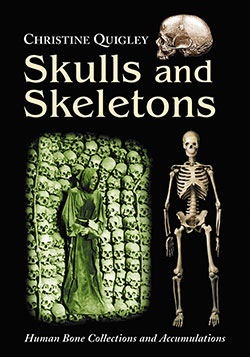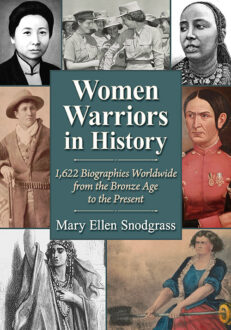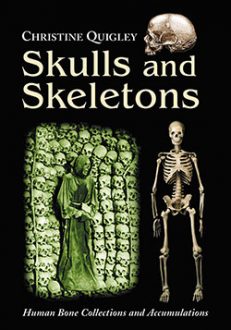Skulls and Skeletons
Human Bone Collections and Accumulations
$35.00
In stock
About the Book
Of the parts of the human body, the bones have a unique durability that lends itself to collection. Skeletal remains can be recovered even millions of years after death, cleaned of debris, studied at length, and stored indefinitely.
Motivations for collecting human skeletal material range from the practical (in anthropology, medicine, forensics) to the ritualistic (phrenology, in the relics of martyrs and saints). This book is an examination of those motivations and the collections they have brought about—catacombs, ossuaries, mass graves, prehistoric excavations, and institutional and private collections.
The book contains sections on procuring, handling, storing, transporting, cleaning, and identifying skeletal remains. The repatriation of remains is also addressed.
About the Author(s)
Bibliographic Details
Christine Quigley
Format: softcover (7 x 10)
Pages: 271
Bibliographic Info: 67 photos, appendix, glossary, bibliography, index
Copyright Date: 2008 [2001]
pISBN: 978-0-7864-3888-4
Imprint: McFarland
Table of Contents
Acknowledgments v
Preface 1
Introduction 3
1. Accumulations 19
Catacombs 19
Ossuaries 29
Mass Graves 42
2. Excavations 50
Prehistoric and Protohistoric Sites 52
Historic Sites 74
Contemporary Sites 95
3. Collections 99
Collectors and Collecting 101
The Institutions 118
4. Decoration 155
ModiÞed Bones 155
Arranged Bones 171
5. Curation 186
Procurement 186
Handling, Storage, and Transport 191
Cleaning and Degreasing 192
Documentation 193
Reconstruction and Reproduction 195
Identification 200
6. Repatriation 205
Legislation 212
Loss of Collections in the United States 217
Loss of Collections Worldwide 223
7. The Future of Existing Collections 236
Making Compromises 236
Encouraging Donation 239
Collecting Data 240
Appendix: Addresses 243
Glossary 245
Bibliography 253
Index 261
Book Reviews & Awards
- “Unique…useful”—Choice
- “Important scientifically and historically”—C&RL News
- “A great job…easily understood…fascinating…richly illustrated”—AGS Quarterly
- “Fascinating…a thoughtful, even-handed analysis…excellent”—Mummytombs
- “A great book…very interesting”—Journal of Forensic Medicine and Toxicology
- “Comprehensive…invaluable…you must own this book”—Morbid Curiosity.





